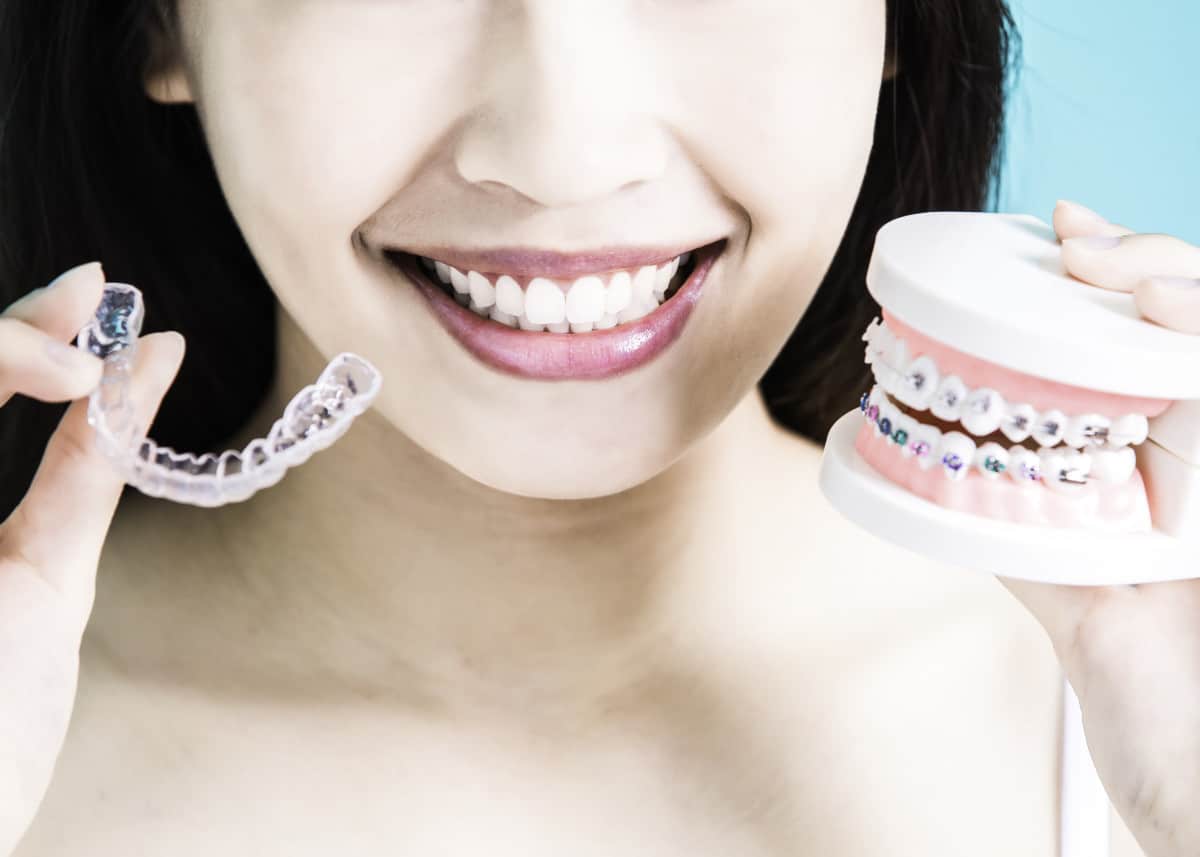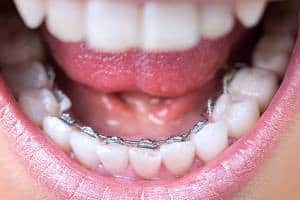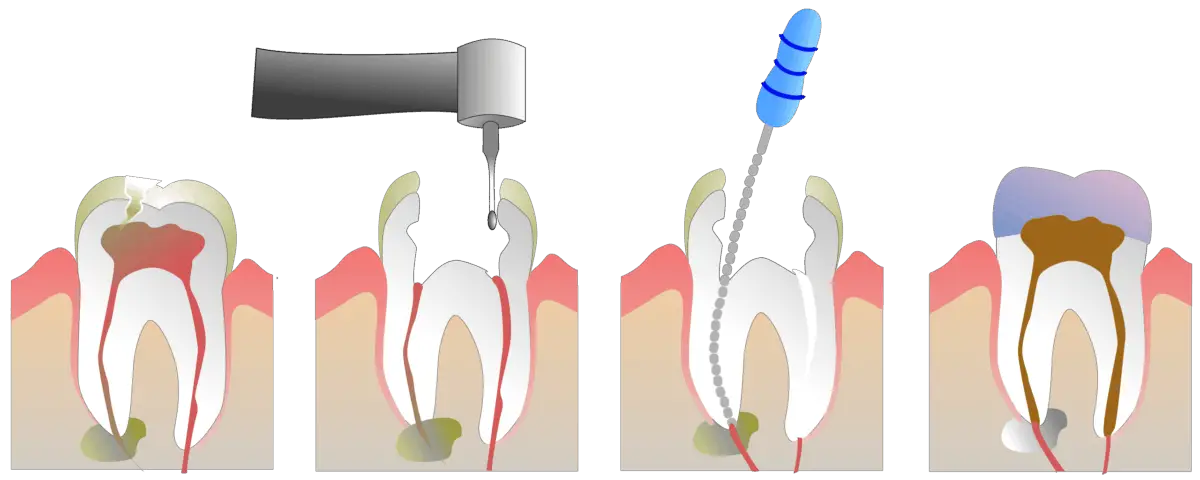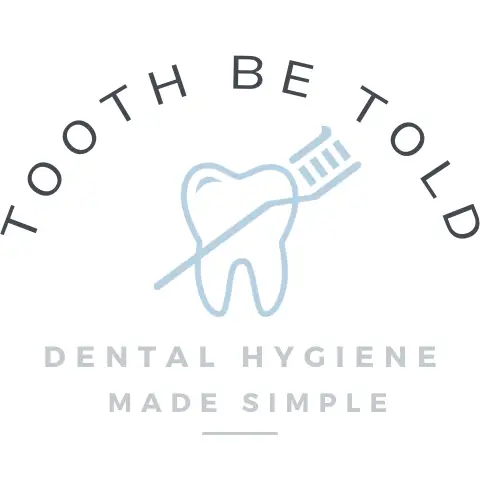
There have been a few instances in my dental hygiene practice where things just don’t go right for my patients, and they need a root canal to save their tooth. With more and more adults going through orthodontic treatment, needing a root canal or already having one before braces is becoming more common. A question that has occasionally arisen in my dental chair is, can you get a root canal with braces?
You can get a root canal with braces. Root canals can be done before, during, and after orthodontic treatment. A root canal is done through the biting surface or backside of the tooth, where the braces are not attached, and will not be moved for 1-2 months to allow for proper healing time.
There is a little more to it though, as we are all unique, and the situations encompassing getting a root canal and orthodontic treatment vary. In this post, I go over many different scenarios and info you need to know when dealing with braces, Invisalign, root canals, and the risks involved.
Can you get a root canal with braces?
Root canals can be done while wearing braces because root canals are done by accessing the inside of the tooth, through the biting surface of the back teeth, and the tongue side of the front teeth. The braces do not get in the way because they are put on the cheek side of the teeth.

The only time the braces would be in the way is if you have lingual braces (where the brackets are placed on the tongue side of the tooth) on the front teeth, as seen in the image above. If that is the case, the dentist or endodontist performing your root canal would take off the bracket or get your orthodontist to do it before the root canal treatment.
Endodontist: A dentist, with a specialization, in the pulp of the tooth and saving teeth through endodontic treatment, for example; root canals.
Orthodontist: A dentist, with a specialization in malpositioned teeth and jaws, and corrects such issues by moving teeth through orthodontic treatment, for example; braces, Invisalign, retainers.
Most often, root canal treatment is done as the last resort to save the tooth, and the only other option is to extract the tooth. If a root canal is needed, it’s often considered an emergency treatment, and all other treatments move down the priority list. Saving teeth and maintaining the health of the whole mouth is the top priority.
TIP: Make sure your orthodontist is aware of any root canal treatments you have had while having braces.
Ask the dentist/endodontist who performed your root canal, for a copy of the report and X-ray that was done so you can give the orthodontist/dentist carrying out your orthodontic treatment this information. They will be very happy!
Alternatively, you can give your orthodontist the name of the office where you had your root canal done and they can forward the information and the X-ray.
Read Now: Braces: What Age Is Too Late? Dental Hygienist Explains!
Orthodontic treatment after having a root canal treatment should be done with caution in regards to the tooth that has been root canal treated. The tooth needs time to heal, so often the tooth is taken out of active movement/forces for 1-2 months.
The dentist/orthodontist may take off the bracket on the root canal-treated tooth or choose not to attach a wire to the bracket to keep it isolated. Depending on what tooth has been root canal-treated, the tooth will be left alone for 1-2 months following the root canal treatment.
How long after a root canal can you get braces?
Braces can be put on right away after having a root canal. The orthodontist may refrain from putting that tooth into active ortho for 1-2 months following the root canal to allow for proper healing.
Before orthodontic treatment, the orthodontist/dentist should always take x-rays to assess your overall oral health status and any oral conditions you may have at that moment in time. So any root canals you may have had already will show up on the x-rays. But if you have had a root canal after these x-rays were taken, make sure to tell your orthodontist!
Teeth that are root canal treated, no matter how long you have had them for, should be monitored closely through x-rays while going through orthodontic treatment. Any problems that may arise can be caught early, and intervention can be taken.
Can braces cause root canals?
In extremely rare circumstances, braces can cause issues to teeth and will require root canal treatment. When a tooth is moved through the jaw bone, there is a possibility to cause trauma to the tooth and bone or reignite a past trauma to the tooth that causes the nerve to die.
The forces caused by the brackets are done at a gentle and slow pace, to prevent trauma to the teeth and bone in the jaw. Often there has been a previous trauma to the tooth, and the nerve in the tooth starts to die slowly, and braces can trigger that process to happen more quickly. This is the most common reason for the need for a root canal during orthodontic treatment.
But please remember, this situation is so rare, and the benefits far outweigh the risk. If you would like to know more about why braces are needed, I linked a post below that I wrote on the topic. 🙂
Read Now: Cosmetic or Medical? Reasons Why Dental Braces Are Needed

Why root canals are needed
Root canal treatments are done to save and prolong the lifeline of a tooth. If the pulp of the tooth is affected by infection, decay, or injury and starts to die, a root canal will be needed.
If a root canal is not done, taking the tooth out via extraction will be necessary because if they are not treated, you could develop a serious infection that could spread to your whole body.
Root canals are needed to treat inflamed/infected pulp caused by different reasons including the following;
- Broken teeth/crowns if a large portion of the crown of the tooth is broken off.
- Infection at the root tip (periapical abscess).
- Trauma to the nerve of the tooth causing the nerve to die.
- A large cavity/decay that reaches the pulp chamber.
- Internal root resorption.
Also, if the tooth is broken underneath the gumline, surgery may be needed to take away the top of the bone surrounding the tooth to make sure there is enough tooth for the crown to hold onto. Otherwise, it will need to be extracted. And, sometimes there is a fractured root of the tooth, and unfortunately, there is no other option other than extracting the tooth as surgery is not possible.
Can you use invisalign with root canals?
You can use Invisalign with root canal-treated teeth. Teeth with root canals will be monitored closely with x-rays during orthodontic treatment to make sure the teeth and bone are healthy. Teeth movement is facilitated by the outside surfaces of the teeth, not the inside, where the root canal is.
Can you get a crown with braces?
It is best to get a crown placed on a tooth after the braces come off and orthodontic treatment is completed. If you put a crown on during orthodontic treatment, there is a high chance it will not fit and contour to the teeth beside it when orthodontic treatment is complete.
If you have crowns on your teeth already, you can still have orthodontic treatment. The orthodontist/dentist will apply a different glue to the tooth that has a crown on it.
Read Now: Perfect Bite: How Teeth Should Line up and Come Together
Are there any risks of orthodontic treatment on a root canal-treated tooth?
There is a chance that orthodontic treatment can trigger an infection if the root canal is starting to fail or was not done properly. Root canal-treated teeth can be moved with orthodontic treatments safely, but if there is an issue already arising with the tooth that hasn’t been detected, orthodontic treatment can exacerbate the problem.
The root canal may need to be redone, and in a worst-case scenario, the tooth may need to be extracted. But, PLEASE remember that this is extremely rare, and the benefits of orthodontic treatment far outweigh the risks.
Always consult with your dental professional because they have access to your mouth in real life, and can use many different tools to help them fully understand your current oral health condition!
I hope I have helped you find what you are looking for, and if you are in need of a root canal, they really aren’t that bad! (I had one many years ago and the hardest part was just staying open for so long).
Have a wonderful day,
Holly 🙂
